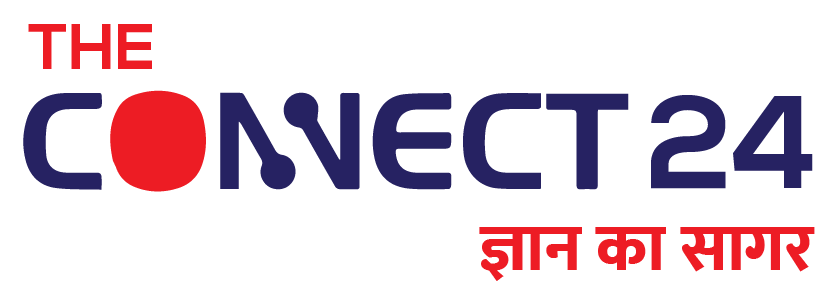Beyond Caregiving: Parents as Lifeline
Parents of chronically ill children don’t fit neatly into the word “caregiver.” Every day, they juggle roles as medical advocates, medication managers, part-time nurses, therapists, educators, and emotional anchors. They learn complex medical language to communicate with doctors and fight tirelessly for educational accommodations and insurance approvals. Their presence isn’t optional; it’s the steady force that keeps treatment plans on track and children hopeful. Recognizing these parents as multi-skilled, indispensable pillars-not just passive helpers-is essential. Society often overlooks the expertise they gain out of necessity, but this invisible labor directly affects a child’s quality of care and life. By reframing them as care coordinators and health champions, we validate their daily sacrifices and honor their tireless dedication.
The Invisible Weight: Stress, Anxiety, and Burnout
Constant medical appointments, sleepless nights, and unpredictable emergencies create extreme psychological stress for these parents. Anxiety about a child’s future, guilt over dividing time between siblings, and fear of medical setbacks often build silently. Burnout becomes a reality, not because they lack love, but because there’s rarely time to rest, grieve, or simply breathe. Studies show parents of chronically ill children face higher rates of depression and PTSD-like symptoms compared to other parents. Yet, mental health support tailored for them is limited or nonexistent. Recognizing this mental toll isn’t just empathy; it’s an urgent public health need. Parents can care better for their children when their own emotional health is protected and supported.
Financial Burden: More Than Medical Bills
The cost of treatment-surgeries, therapies, medications-quickly drains savings, but financial strain runs deeper. Many parents leave full-time work or reduce hours to provide care, sacrificing income and career growth. Hidden costs, like transportation to specialized hospitals, adaptive equipment, and home modifications, add up. Even families with insurance face out-of-pocket expenses that can amount to thousands yearly. The financial impact often forces difficult choices: between savings and care, or siblings’ needs and the ill child’s therapies. Addressing this burden requires more than charity; it demands policy reforms like medical leave protection, tax credits, and affordable coverage so no family must choose between livelihood and a child’s health.
Community and Policy Gaps
Despite the clear need, community and policy support systems remain inadequate. Disability benefits are hard to qualify for, respite care is scarce, and waitlists for specialized programs are long. Schools may lack resources to include chronically ill children fully, forcing parents to advocate constantly. Social isolation also deepens: friends may withdraw, unsure how to help or fearing awkwardness. Policymakers rarely consult parents when designing support systems, leading to programs that miss real needs. Closing these gaps starts with listening to families, understanding daily realities, and building responsive, flexible systems that adapt as children’s conditions change.
Better Healthcare Access: A Lifeline, Not Luxury
Simplifying access to specialists, therapies, and medications could transform daily life for these families. Coordinated care teams, streamlined insurance approvals, and telemedicine options reduce logistical and emotional strain. Universal healthcare coverage for chronic pediatric conditions would prevent families from drowning in bills. Pediatric palliative care-often misunderstood-can enhance quality of life even when a cure isn’t possible. Better access means fewer crises, more stability, and space for parents to be more than nurses: to also be comforting parents, storytellers, and teachers.
Flexible Work Options for Parents
Workplaces can play a crucial role in easing parental strain. Flexible hours, remote work, job sharing, and understanding supervisors allow parents to attend appointments without risking income or promotions. Paid family leave-still unavailable to many-would reduce career penalties. Creating workplace cultures that value caregiving responsibilities strengthens loyalty and reduces turnover. Beyond policy, genuine flexibility helps parents stay connected to professional identities, financial independence, and mental health, all while being there for their child’s unpredictable needs.
Emotional Support: Peer Groups and Counseling
Sharing space with others who understand the unique journey of raising a chronically ill child can be life-changing. Peer groups reduce isolation, provide practical tips, and validate emotions that might feel “wrong,” like resentment or exhaustion. Professional counseling helps process grief, chronic stress, and relationship strain. Hospitals, nonprofits, and online communities can build these networks affordably. When parents’ emotional needs are met, they’re better equipped to care for their children lovingly and sustainably.
Moving Forward: From Awareness to Action
Parents of chronically ill children deserve more than admiration-they need real change. Better healthcare access, flexible work policies, financial relief, and mental health support can shift families from constant crisis mode to a place of resilience and hope. Each of us-employers, policymakers, friends, and neighbors-can help by seeing parents not only as caregivers but as skilled advocates, teachers, and healers. By listening, supporting, and advocating alongside them, society can turn compassion into concrete action.
ALSO READ-What Causes Diarrhea? Foods to Avoid and Diet Tips Explained
Disclaimer: The articles, videos, and news published and shared on Theconnect24.com covering topics such as religion, astrology, health, yoga, history, mythology, and others are intended solely for general informational purposes. These materials are sourced from various references, and Theconnect24.com does not guarantee or verify their accuracy, completeness, or authenticity. Viewers are strongly advised to seek guidance from qualified experts or specialists before practicing, following, or experimenting with any information related to astrology, health, or similar subjects. This content is presented purely for the interest of viewers and does not carry any scientific validation or evidence.



